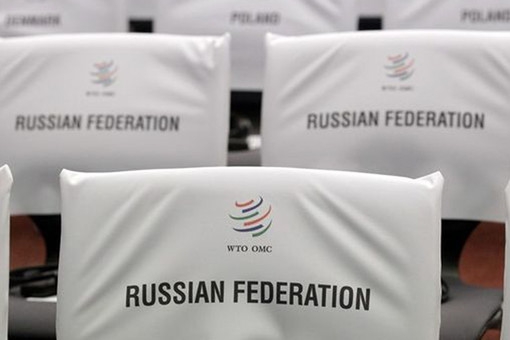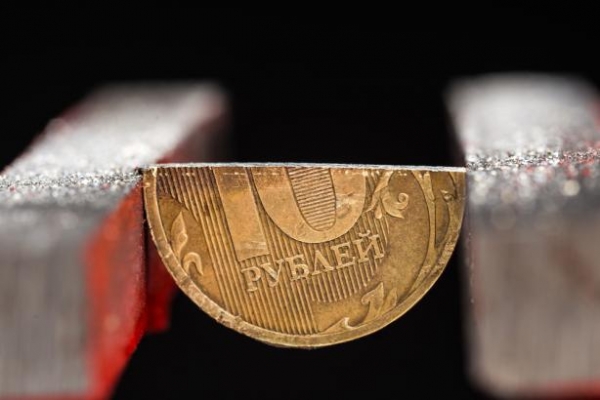
Russia officially joined the world trade organization three years ago. Then, the analysts talked about some of the possible pros and cons for the country.
Now experts are ready to summarize the results, they said, than turned to Russia’s accession to the WTO and, in particular, benefitted from this export.
The world trade organization (WTO) was formed in 1994, it became the successor to the General agreement on tariffs and trade. The WTO controls more than 95% of world trade, the main objectives of the organization — the facilitation of international trade relations and promoting economic growth of the participating countries.
Russia officially joined the organization in August 2012 — just over three years ago, she did it last of the countries “the big twenty”.
When Russia joined the WTO, one of the main objectives, including, obtaining new opportunities for further export development.
Expected more favorable conditions for the supply of domestic goods on foreign markets, attracting investments for development of own production, improvement of quality and competitiveness of Russian goods and services as a result of import growth, the access of Russian investors to international projects, improving the country’s image in the international arena.
Also expected to increase competition in the financial sector, it was assumed that the result can be a reduction of credit rates for the population and enterprises of small and average business.
However, the current crisis in Russia has not given this plan to succeed: in December of last year was sharply raised a key rate of the Central Bank and, therefore, increased the cost of money in the economy, and the credits went up.
Since then, there is a gradual decline in the key rate, but to pre-crisis values until she returned. Also the common and quite logical for all countries participating in WTO trend. They are able to increase the volume of exports in those industries where production is more efficient than the competition abroad.
And in those industries that require substantial support, on the contrary, the growth of imports. According to the international trade Centre of Moscow, after Russia’s accession to the WTO on 16% increase in the export of group “machinery and equipment”, the export of clothing and footwear increased by 26%, food — 5%. According to the Federal customs service, during the first half of 2015 the volume of exports of metals and products from them increased by 8.1%.
The share of exports of machinery and equipment in the total structure amounted to 5.1%, export value in this category rose by 23%. Among the possible cons of Russia’s accession to the WTO, analysts have drawn attention to the fact that businesses cannot withstand competition with foreign producers, and the reduction in import duties could lead to the fact that some products would become unprofitable to produce domestically.
It was noted that the greatest risk exists for the agricultural sector. Also caused concerns about the state of the domestic automobile industry, and indeed some businesses were forced to close.
However, recent data shows that successful production which managed to cope with this challenge, only improved its performance. Last year the Russian manufacturers in the field of agriculture exported goods for $20 billion, the increase amounted to 15%.
Also improved its position Lada — supply growth in 2015 has ranged from 20% in Kazakhstan to 4.5 times in Germany. Read more about the achievements of Russian exports over the last year recounted here. Analysts feared that the accession to the WTO will complicate the fulfillment of the dreams about getting rid of commodity dependence for a variety of reasons — including because of the thesis competition, about which was written above.
But the exchange rate to make exports more varied until observed. Read more previously described. Opponents of the WTO point to the reduction in exports from Russia after its accession to this organization. However, this was caused mainly by the fall in oil prices, said a senior researcher of the Center for economic research of the Russian Institute for strategic studies (RISS) Nikolai Troshin. He points out that in the first half of 2015 the value of exports of crude oil amounted to only 59.3% of its value over the same period in 2014.
However in other areas the drop was not as significantly, while the value of exports of non-ferrous metals and potash fertilizers has increased (by 8.7% and 54.7% respectively). Noteworthy statistics and restrictive measures. At the beginning of November 2012 (ie soon after the accession of Russia to the WTO) a total of 18 countries applied protective measures against Russian goods.
They comprised 73 measures, and were conducted 5 investigations. By August 1, 2015 the number of countries using restrictive measures against Russian products increased to 27, and the number of measures taken to 112. To 22 has increased and the number of investigations.
The number of anti-dumping measures remained unchanged (39), and increased the number of non-tariff measures (from 31 to 54) and special protection duties (from 3 to 20). According to the expert, these statistics can serve as an indirect confirmation of the success of Russian exporters. “The use of special safeguard measures under the WTO rules is possible in the event of a sharp increase in the supply of any goods from abroad, which could harm local producers”, — said Nikolai Troshin.
Director of Department of investment promotion and innovation of the chamber of Commerce of Russia Alexei Vyalkin believes a positive result, what happened to the influx of cheap imports. “A significant role was played by the “sanctions war”, but according to the results of the pre-2013 there is even a decrease of imported products for a number of product lines,” says the expert.
However, he notes that significantly increased the tendency of stratification of the economy on highly profitable and low profitable sector. “On the one hand, it promotes the growth so necessary for the development of economic competition, on the other — motivates the search for measures to support strategically important industries,” said Alexei Vyalkin.
According to the expert, not justified the hopes of Russian exporters to facilitate access to international markets: it already existed before the “sanctions war” restrictions against Russian companies, adding new. “Virtually blocked access to advanced technology, drastically decreased the volume of foreign direct investment, it is extremely difficult to access cheap financial resources – and these were the main objectives of our accession to the WTO.
And for ordinary Russian consumers, WTO membership is barely visible: we expect a reduction of retail prices of imported goods did not happen” — said the expert.
Representatives of the CCI was concerned about the situation with attracting foreign direct investment. They recognize that in 2013 foreign direct investment in Russia increased by 57% ($79 billion), as a result, our country in the first full year of membership in WTO for the first time came in third place in the ranking of the States on this indicator. “This leap was due to several unsustainable factors.
Good indicators of recovery of economic growth in the period up to 2013 with high return projects in the energy sector, indeed, has made Russia attractive for investors. They actively invested in our energy money by using loans taken from parent companies”, — says the expert of the CCI.
Also, he referred to the purchase in 2013 by BP of 18.5% stake in Rosneft and a deal with the company’s Chinese Chengdong, who bought 12% stake in the Russian company. But neither in 2014 nor in 2015, new deals such volume is not visible and not yet visible.
“However, with all the complexities of current engagement with the EU and USA, Russia is trying to follow through on their commitments. However, the paradox is that used today against Russia restrictive measures are in direct conflict with the principles of the WTO, which suggests that the possibility of membership in the organization in the short term are unlikely to provide the expected economic preferences,” concludes a member of the CCI Alexei Vyalkin. Added Nikolai Troshin more optimistic.
“The WTO is not a magic wand that opens foreign markets for Russian exports. Rather, it is a set of standards and requirements, which we have yet to learn how to use. We must make broader use envisaged by the WTO rules measures to protect domestic producers and to encourage exports,” said the analyst.








